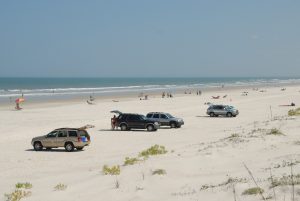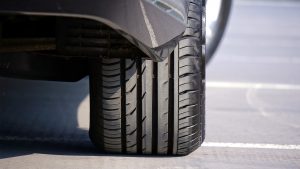 With school officially out, and the thrill of summer ahead, many of us are about to embark on road trips and weekend excursions. When preparing for your next trip, consider your general automobile maintenance habits and driving tactics. Being mindful of these things could save you a few bucks along the way, leaving more money in your pocket for a refreshing treat in the Texas summer heat!
With school officially out, and the thrill of summer ahead, many of us are about to embark on road trips and weekend excursions. When preparing for your next trip, consider your general automobile maintenance habits and driving tactics. Being mindful of these things could save you a few bucks along the way, leaving more money in your pocket for a refreshing treat in the Texas summer heat!
Use our road trip tips to keep your automobile in optimal condition this summer, and our eco-driving tactics to save money at the pump. If you’re interested in saving money while receiving the best auto insurance, let one of our knowledgable agents help!
Eco-Driving Tactics
- Seek out alternate driving routes. If you have the time (after all, road trips are meant to be an adventure), look for more level roads with less traffic and fewer stops and sharp turns.
- Drive the speed limit (or just below). It’s safer, and it’s the law. Don’t drive so slowly that you create frustration or become a hazard to other drivers, but driving the speed limit (or just 3-5 miles per
 hour below) can boost mileage. According to www.fueleconomy.com/gov, you spend approximately 17 cents to the cost of each gallon of gas for every 5 mph you go over 50 mph. And remember, while trying this tactic, avoid the left lane. This will prevent you from becoming an obstruction for other drivers.
hour below) can boost mileage. According to www.fueleconomy.com/gov, you spend approximately 17 cents to the cost of each gallon of gas for every 5 mph you go over 50 mph. And remember, while trying this tactic, avoid the left lane. This will prevent you from becoming an obstruction for other drivers. - Be smooth with both the accelerator and the brakes. Drive with a less aggressive attitude—don’t race to stoplights and stop signs just to slam on the brakes. Instead, let your car’s momentum do most of the non-fuel-burning work.
- Set the cruise control. One of the central rules of eco-driving is maintaining a steady, even speed. Your cruise control will help prevent unnecessary speeding up and braking and keep your speed from slowly creeping higher.
- Avoid excessive idling. In the driveway, a parking lot, or even a drive-through, turn off the engine if you think you’ll be stopped more than 30 seconds. Do not, however, turn it off at stoplights doing so makes it hard to safely get out of harm’s way if there’s a sudden problem.
 Everyday Fuel Efficiency Tips
Everyday Fuel Efficiency Tips
• Keep your engine well-maintained. Regular tune-ups can greatly improve your mileage.
• Reduce aerodynamic drag. If you’re not using them, take off things like luggage or bike racks—aerodynamic drag is one of the main factors in lowering gas mileage.
• Properly inflate tires. Never over-inflate tires. However, keeping them filled at the high end of the recommended pressure will help reduce road friction.
• Use a low-weight, light-viscosity oil. It will improve your engine performance, but stay within the factory recommended weight and viscosity for advanced mileage savings. Switching to a synthetic engine oil can sometimes improve mileage.
Fuel Functionality
• Use the recommended gas for your car. Going lower than the recommended octane may reduce fuel economy, while going higher won’t help as your engine will be unable to take full advantage of premium fuel. So, check your owner’s manual. Most gasoline vehicles are designed to run on 87 octane, but others are designed to use higher octane fuel.
• Understand what an octane rating means. Engines with higher compression ratios require a higher octane fuel to ensure their air/fuel mixture doesn’t pre-detonate. Most car makers design their engines with a specific octane fuel in mind (87, 89, or 91 octane fuel).
• Higher octane doesn’t necessarily mean better performance. High performance engines often require a higher octane fuel because they utilize much higher compression ratios than most vehicles.
• You can get the best performance, mileage and emissions under normal driving conditions from using the octane fuel your engine was designed for, not the highest octane available.
After considering these road trip tips, also remember that having great automobile coverage doesn’t necessarily mean having higher insurance premiums. Because Stone Insurance Group is 100% independent, we can take your current coverages and compare them with a wide range of insurance providers to see who offers you the best deal possible.

 hour below) can boost mileage. According to
hour below) can boost mileage. According to  Everyday Fuel Efficiency Tips
Everyday Fuel Efficiency Tips